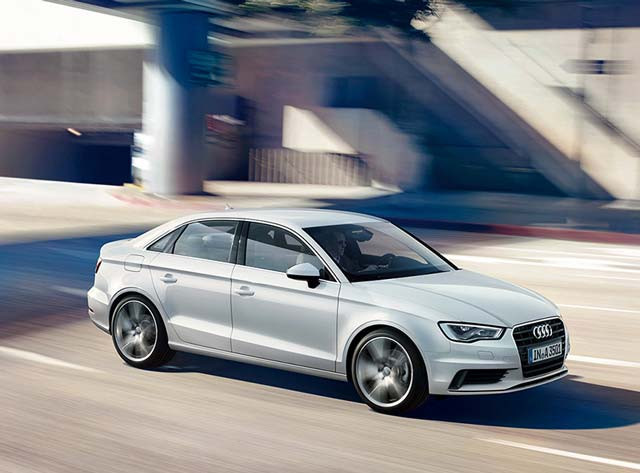Engine downsizing: the road forward
Audi official says country showing increased interest in luxury brand

Audi A3 has been a popular choice among consumers preferring to go for a luxurious brand. PHOTO COURTESY: audi.com.pk
The auto sector is no different. Some brands are made to tap the high-end market, others are tipped to be more affordable and a few are there to just fill the void. Unfortunately, Pakistan does not see a lot of variety and has been stuck with a market neatly divided among three major brands.
Audi Pakistan, however, has slowly and gradually been able to create a different sort of mark for itself. Labelled as a “true success story” by Audi Germany, its cars – imported through Premier Systems (Pvt) Limited – have managed to find a place in a robust market. Reputed to be a high-end German brand and competitor to Mercedes and BMW – their latest advert fight spawned a creativity war – its place in the Pakistani market has been symbolised by engine downsizing that has made it, by default, more affordable.
 DESIGN: NABEEL AHMED
DESIGN: NABEEL AHMEDDespite the duty structure, which ranges from 50% to 90%, put in place to give incentives and protection to the local industry, a flood of imports makes its way in the country every year. However, a major chunk of it belongs to the smaller engine categories. But Audis have managed to sneak their way in.
The reason why
Ali Khan, who oversees the imports of Audis in the country, says consumers and the industry have benefitted from research and development that has made cars more powerful in lower engine categories.
While mentioning that roughly 2,000 cars – comprising Audis, BMWs and Mercedes – make their way into Pakistan every year, Khan said Audi A3 has been a popular choice among consumers preferring to go for a luxurious brand. Its cost starts from Rs3.8 million and boasts of an engine as small as a 1.2-litre one. This means 60% duty is imposed on the vehicle.
“We call it an entry-level, luxurious sedan,” Khan told The Express Tribune. “Manufacturers are now coming out with smaller engines. It makes sense with regards to fuel efficiency and carbon emissions.
“The number [2,000 cars per year] is also likely to go up. Globally, the auto industry, including BMW and Mercedes, is moving towards engine downsizing to tap into markets that have a high duty structure. Singapore, Indonesia and Pakistan have all requested smaller engines and these were developed keeping the requirements in mind.”
The SUV segment
Terming the Q3 as another success model in Pakistan, Khan said the 1.4-litre engine is directly competing with the Toyota Fortuner. While the Audi costs at least Rs5.8 million, its Toyota counterpart starts a little cheaper.
Khan said the difference lies in the make as he distinguished between the Japanese and German brands.
The other side
The contrasting thing for consumers is that while, globally, manufacturers are looking to downsize engines and keep costs lower in terms of fuel consumption and duty rationalisation, Pakistan has seen its flagship local brands upgrade their engine size in recent years. From 1.3-litre and 1.6-litre standard engines, the capacity has gone up to 1,800cc. The strategy is in stark contrast to the prevalent global practice.
Even if one were to forget the engine – which we can’t – features such as multiple airbags, night-vision and parking assistance are still a relatively new concept in Pakistan.
Echoing that Pakistan needed new manufacturers, Khan hoped the upcoming auto policy will encourage investment in the sector since the country has shown reasonable appetite for more choice.
The writer is the business editor
Published in The Express Tribune, September 28th, 2015.
Like Business on Facebook, follow @TribuneBiz on Twitter to stay informed and join in the conversation.



















COMMENTS
Comments are moderated and generally will be posted if they are on-topic and not abusive.
For more information, please see our Comments FAQ